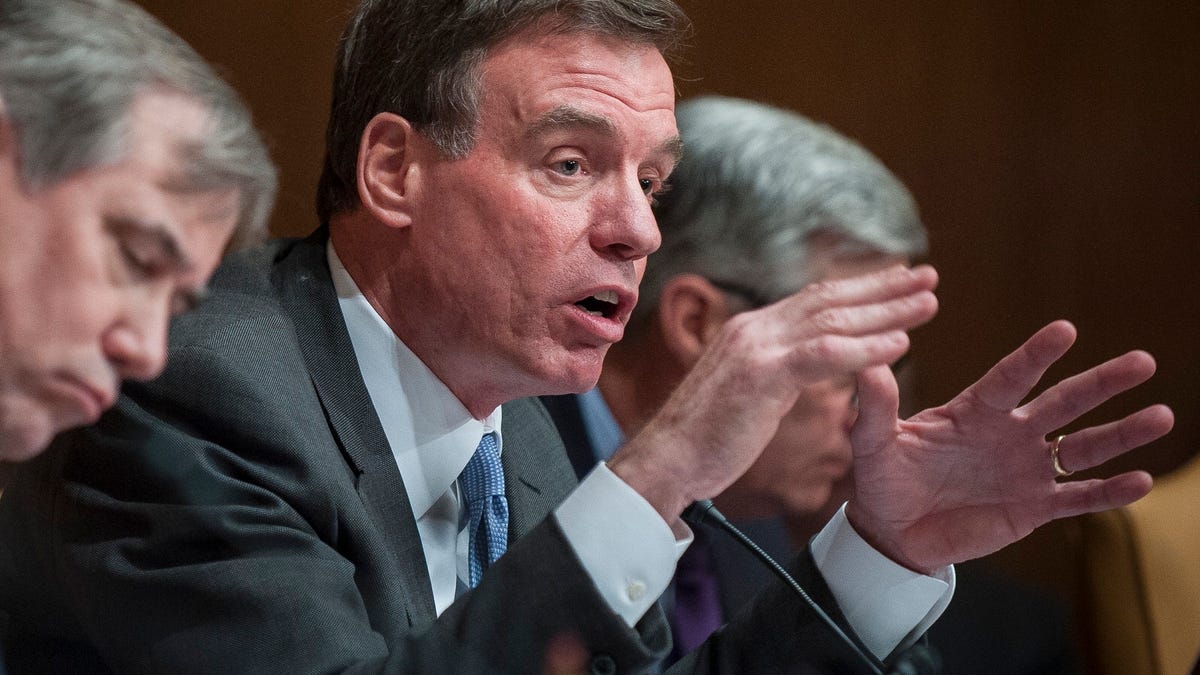What happens when Uber and Airbnb 'hit the fan'?
A US senator hails the flexibility for "on-demand" employers in the sharing economy but asks what happens to them during the next downturn.
A US senator wants the government to get ahead of the curve on the sharing economy.
"This is an extraordinary transformation taking place in our economy," Sen. Mark Warner (D-Va.) said of the rise of services like Uber and Airbnb.
The on-demand, or sharing, economy is based on people using mobile apps and online services such as ride-hailer Uber and room-finder Airbnb to connect budding entrepreneurs with paying customers.
One issue with such services is that they connect people, but that's all they do. Such services don't employ the workers, who are essentially freelancers and cannot access the security and benefits of regular employment. Warner argues that workers in the shared economy have no safety net to protect them during downturns and could then drain government resources.
"We have to maintain this innovation but also ask some fundamental questions," Warner said during this week's CES tech trade show in Las Vegas. "What happens when the stuff hits the fan as it always does? What will the social contract look like in the 21st century?"
Warner, a former governor of Virginia, made his fortune in venture capital by backing telecommunication companies and has kept an eye on tech.
"Washington is rarely ahead of the curve," he said, identifying the sharing economy as an area that has yet to polarize Democrats and Republicans. "Wouldn't it be cool if there was policy that was bipartisan and was framed around a notion of social responsibility?"
Warner also released the findings of a 3,000-person survey conducted in November by think tank The Aspen Institute, PR firm Burson-Marsteller and media company Time.
According to the survey, 86.5 million people in the US -- 42 percent of adults -- have used at least one service in the sharing economy, and 45.3 million people in the US -- 22 percent of adults -- have worked in the on-demand economy.
The survey found on-demand workers can be divided into two groups: "motivated workers" who rely on the on-demand economy as their primary source of income and "casual workers" who generally use the on-demand economy for extra cash.
Of the motivated workers, 71 percent offer more than one service. Three-fourths of these workers are male and two-thirds are identified by the survey as racial minorities.
The on-demand economy is often identified with younger workers, so-called millennials or "digital natives." But people aged 18 to 34 make up just over half of the motivated workers and just under half of the casual workers, showing that older people have jumped into the on-demand trend as well.
Seventy-two percent of those surveyed who work in the on-demand economy believe they should get benefits as part of their job, and 62 percent want training. But the people are largely split down the middle as to whether the on-demand economy should be regulated, with most appreciating the freedom of their on-demand lifestyle.
"In today's world, flexibility is a tremendous asset -- the ability to go and see your kids," Warner said. "The good thing is the people who work in this growing sector really like the work."
Only half of those who work in the sharing economy stated that their finances had improved over the past year. To put that into context, about one-third of the general population can say the same.
The sharing economy has also been controversial as the new players disrupt existing industries, to the chagrin of established players like licensed taxi drivers or hotels. Regardless, Warner believes on-demand employment is only going to get bigger.
"It's starting in Vegas and New York and San Francisco, but this is happening all over the country," he said.
Update, 11:15 a.m. PT: More information added about the number of Americans involved in the on-demand economy.


